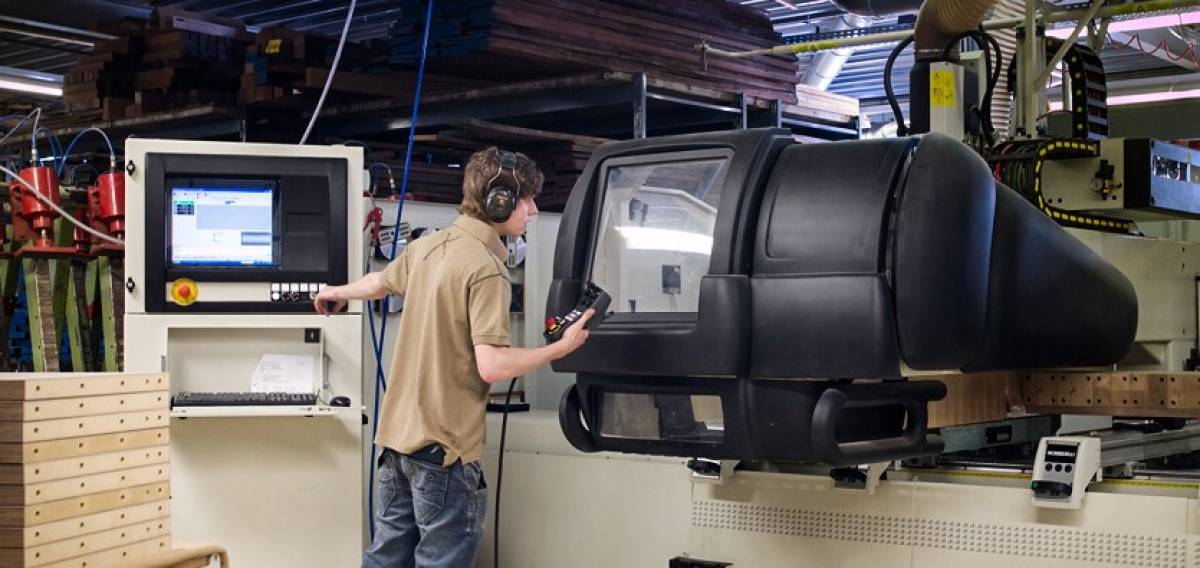Have You Considered Starting a CNC Machine Business?

Computer Numerical Control (CNC) Machining is gaining popularity thanks to the increasing number of businesses using the technology. Unsurprisingly, more and more businesses continue setting up computer-controlled machines to produce highly accurate products.
CNC is simply the automated control of machining tools, such as 3D printers, drills, lathe, and mills by means of a computer. A CNC machine processes a piece of material (plastic, metal, wood, ceramic, or composite) to meet specifications by following a coded programmed instruction and without a manual operator directly controlling the machining operation.
For entrepreneurs looking to launch new businesses, investing in a CNC machine presents an exciting and lucrative business opportunity. With a growing demand across industries, you can invest in a CNC machine and start offering CNC machining services.
Of course, starting a CNC business is not easy as it requires a considerable capital outlay. You’ll need to raise enough capital to purchase the machines. You also need enough money to cover overhead costs, like salaries, power, and repairs.
In this article, we give you a step-by-step guide for setting up a CNC machining business.
Steps to Start a CNC Machine Business
Like most other businesses, to set up and succeed in your new CNC machine business you will need a solid plan, detailing the various aspects of how you will run the business.
Below is the basic procedure to follow when starting your CNC machine business:
1. Develop a Plan for Your Business
It helps if you have a business plan that provides a clear path to follow when running and growing your precision machining business. A plan will help you identify the critical areas, needs, and strategies needed to succeed.
Consider the following key areas when strategizing for the success of your business:
- The cost for starting the CNC business
- Your business name
- Your target clients
- Pricing of your products
- Business marketing and promotion strategies.
Knowledge about how CNC machining works is also a must. The limits on what can be done with a given machine now depends not only on the operator and the materials involved, but also on the machine itself. New and improved design software compounds the benefits of CNC.
By also understanding and knowing everything you can about your target market, you will eliminate trial and error when it comes to marketing and looking for new clients. Knowing your target clients also makes it easy for you to price your products competitively.
Generally, a CNC machining business makes money by selling machined parts that require very close dimensional tolerance and high surface finish. Prototypes may be sold as single items, but most orders are usually placed for large quantities of the same part.
Some businesses set an hourly rate for running different types of CNC machines, such as $40 for a 3-axis milling machine. These costs are independent of human labor. Find the right pricing that works for you by considering all the factors of production.
After you have taken care of capital and pricing, be sure to come up with an appropriate business name that captures your business’ goals and vision, and also appeals to your clients.
2. Register Your Business as a Legal Entity
A business can be registered as a sole proprietorship, limited liability company, or corporation to become a legal entity. Learn about each of these legal entities to determine which suits you best.
It’s generally advisable to open an LLC to avoid being held liable should your CNC machine business be sued for one reason or another.
Registering a business name can be free or cost a small amount with relevant authorities. The registration procedures may, however, vary depending on your locality and type of business.
3. File for Business Permits and Licenses
Once your business is registered as an LLC, partnership, corporation, or nonprofit, you will also be required to file for licenses and permits from the county or city before opening the business.
Failure to get the required permits could result in hefty fines or even closure of your CNC machine business. For example, check your state's legal requirements for setting up a 3D printing machine and file for the relevant licenses and permits for operating the machine.
Moreover, when you’re fully registered, licensed, and operational, you’ll be required to file your tax returns. Pay your taxes diligently to stay on the right side of the law and operate legally.
4. Open a Business Bank Account
As is the case with most businesses, it’s highly advisable to separate business money from personal money. You can do that by opening dedicated business accounts and even have business credit cards that are separate from your personal accounts.
Having separate business bank accounts and credit cards is good protection for your personal funds in case your business accounts get frozen for some reason. A business credit card can also help in building your business credit history, which is important for future borrowing.
You may also need to enlist the services of an accounting expert to help you manage your books and streamline your finances, especially when it comes to paying taxes.
5. Insure Your Business
Don’t forget to insure your business. Insuring your CNC machine business is crucial as it gives you peace of mind knowing you are protected and covered in the event of accidents, machine failures, unexpected revenue losses, and other risks that may happen in your business.
For example, CNC machines can be very expensive to replace or repair. But with the right insurance you can not only cover the repair costs, but also cover your employees and clients in the business.
In this regard, General Liability Insurance and Workers’ Compensation Insurance are two common types of coverage that are a good place to start when insuring your business.
In Conclusion
Setting up a CNC machine business can be challenging, but it is also totally worth it if you set up right and follow all the necessary procedures, including insuring your business and paying your taxes. Becoming ISO 9001-certified can also go a long way in winning over more clients.





















